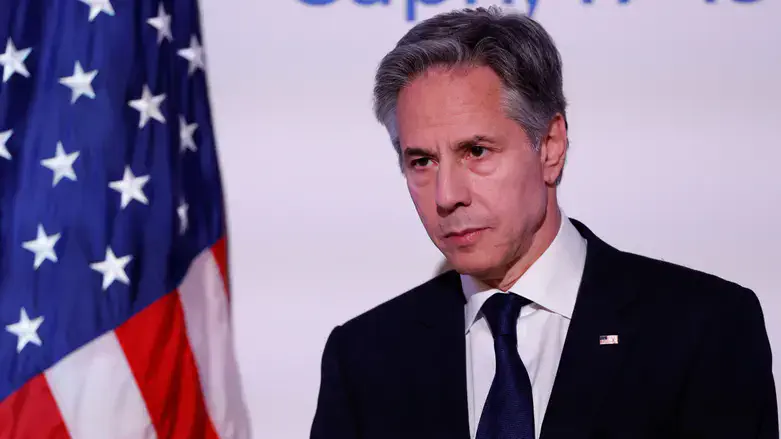
US Secretary of State Antony Blinken on Thursday urged against "escalatory actions by any party" in the Middle East, following the explosions of Hezbollah pagers and walkie-talkies which the terrorist organization has blamed on Israel.
"France and the United States are united in calling for restraint and urging de-escalation when it comes to the Middle East in general and when it comes to Lebanon in particular," Blinken said after talks in Paris with his French counterpart Stephane Sejourne, as quoted by AFP.
The Secretary of State said this was especially important at a time when the international community was continuing work to agree a ceasefire in Gaza to end the conflict between Israel and Hamas.
"We continue to work to get a ceasefire for Gaza over the finish line... We believe that remains both possible and necessary. But meanwhile we don't want to see any escalatory actions by any party that makes that more difficult," Blinken said.
Sejourne, making one of his final public appearances ahead of a cabinet reshuffle that will see him sent to Brussels as France's new EU commissioner, said both France and the United States were "very worried about the situation" in the Middle East.
He added that both the United States and France were coordinating to "send messages of de-escalation" to the parties and warned, "Lebanon would not recover from a total war."
On Tuesday, dozens of pagers worn by Hezbollah terrorists exploded in the Dahiah area of Beirut, which is a Hezbollah stronghold.
A day later, walkie-talkies exploded in the same area, killing at least 14 people and injuring approximately 450.
State Department spokesman Matthew Miller told reporters on Tuesday that Washington was not aware in advance and had no involvement in the pager explosions.
Miller declined to comment on widespread suspicion that the blasts were carried out by Israel and would only say the US message to Iran, which is the main backer of Hezbollah, remained unchanged.
"We would urge Iran not to take advantage of any incident to try to add further instability and to further increase tensions in the region," Miller stated.
Similar comments were made on Wednesday by White House National Security Council spokesperson John Kirby.
“What I can tell you is we were not involved in yesterday’s incidents or today’s in any way, and I don’t have anything more to share,” Kirby told reporters during a White House press briefing.
Kirby repeatedly declined to confirm on the record that Israel was behind the electronics attacks, telling reporters, “I’m not going to get into intelligence assessment, estimates and assessments from here.”

